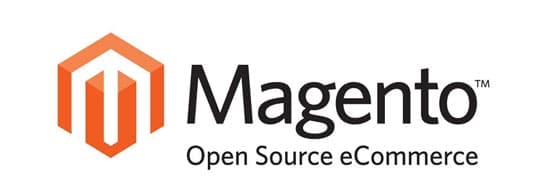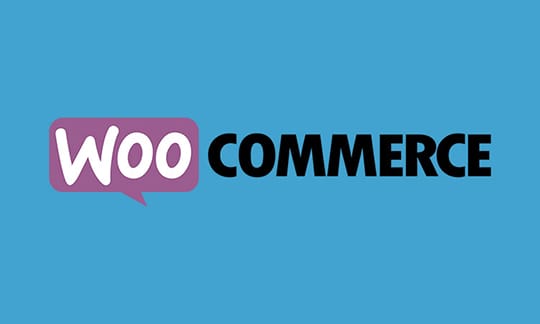Most of the web technologies, more or less, offer the usual features that you would need to develop a cutting-edge site. I am talking about the amenities such as multiple payment gateway support, responsive designs, elegant and professional looking themes and templates, and great customer support.
So how do you make a wise decision on choosing the right web technology for your e-commerce website?
With the objective to help you decide effectively, we put forward a list of 10 latest web technologies useful for all kinds of e-commerce websites. Take a look.
#1 Shopify
Unarguably, Shopify is one of the most popular and highly preferred web technologies used to host an e-commerce website. It has an impressive track record of adding new features and keeping up with the latest changes.

With Shopify, you can expect responsive checkout. Since half of all e-commerce transactions occur on mobile devices, responsive checkout becomes a favorable feature to have for your store. Moreover, your customers will be able to make payment in BitCoins instead of traditional currency. Now, isn’t that fascinating!
#2 BigCommerce
You might ask what’s so great about BigCommerce? Well, to begin with, they have a huge and thriving community of developers all over the world, which means you can expect an addition of a lot of new features and functionality. Their developers leave no stones unturned in ensuring that they stay up to the latest market demands and technology trends.

Improved SEO, built-in blogging, and 24/7 customer support are a few of its pertinent features. Also, to let you know, BigCommerce won an EcommerceBytes Seller’s Choice Award in the year 2014!
#3 Magento

While running a project of setting up an e-commerce store, there are many times when requirements alter, either dramatically or subtly. At such times, you really want to fall back on a web technology that helps you meet all the challenges. Magento, by far, is one of the most popular and reliable e-commerce platforms for B2B and B2C customers. Its wide availability of extensions for integration with 3rd party products and services makes it so popular among the community.
#4 WooCommerce

WooCommerce, a popular and free e-commerce plugin is built to integrate with WordPress and does a fabulous job in giving store owners an opportunity to sell things easily and quickly. Thanks to its access to free and premium WordPress extensions, WooCommerce is undeniably a magnificent choice for those looking for a stress-free setup. Today, 30% of online store owners are relying on WooCommerce plugins to suffice their requirements. With the help of WooCommerce, you can sell anything anywhere, ship anything anywhere, in addition to fetching extensive payment options.
#5 OsCommerce

If you fancy self-hosting an online store for free then OsCommerce will be a safe bet. With OsCommerce, a store owner has complete access to and absolute control of their store and database. Till date, over 7000 free add-ons have already been updated by the far-fetched community. At every stage of operating your online store, the community of more than 280,000 store owners and service providers are always available to assist you at every stage.
OsCommerce is apparently one of the earliest open-source platforms available till date.
#6 OpenCart

OpenCart is another popular and very useful open source CMS for e-commerce stores. Featured rich with a large number of plug-ins, excellent backhand use, and CSS can be edited from within the admin. The negative side is, its support systems are not very comprehensive as compared to other platforms mentioned in this article.
#7 Drupal Commerce

Technically speaking, Drupal Commerce is unbeatable as it is built from the scratch and is developed keeping in mind the framework, hence focusing on what can be built with it. Drupal Commerce is, thankfully, a fantastic content management and online marketing platform, which ensures that customers and its users receive an unprecedented experience while using the e-commerce website.
After WordPress, Drupal Commerce is the second most used open source website content management systems.
#8 KartRocket

This Delhi-based has powered over 1900 stores via its platform till date. Moreover, it has also got around $2 million of investment in January 2015 in order to fund its goals of expansion and development.
KartRocket has a good choice of storefront templates and provides a clean backend interface.
#9 Squarespace

If you plan to create a beautiful, image-rich website, Squarespace is your safe bet. Their templates are rich and polished and their e-commerce tools are commendable. Squarespace allows its clients to have full control over product variants, inventories, coupon generation, configuring shipping options and so forth.
It really has got all the helpful tools required to build a comprehensive e-commerce store.
#10 SimpleCart

SimpleCart works on a single motto, “All You Need to Know is HTML”, and as per its existing users, that is true. If you have a small store, then SimpleCart will be best suited to your needs.
Since it has a small footprint, it runs very fast, which is vital. Besides, it supports a wide range of currencies. Remember to invest in a powerful security software while using SimpleCart.
In conclusion!

So that’s a list of 10 fantastic web technologies for your e-commerce website. You must pick a solution that is suitable to your needs. Choose wisely.
This article is written by Isha Singh from oCodewire, a custom Magento development company. She is trying to take advantage of the technical knowledge she has to help people gain a foothold in the digitized world. Read her sharing her views on marketing services, e-commerce platforms, and web & application development.




